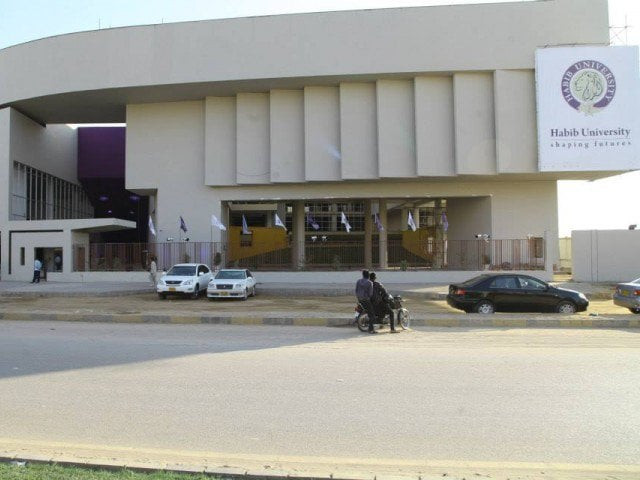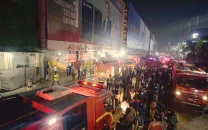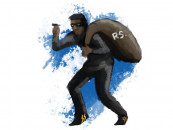Break the mould: ‘Incorporate creative chaos into your work’
Creative technologist Asa Calow discusses his organisation, Madlab, at Habib University

PHOTO: HABIB UNIVERSITY FACEBOOK PAGE
While giving a lecture on Friday on digital disruption and creative chaos at Habib University, he said that creative chaos is the idea that the destruction of established patterns can often lead to creativity and learning about new technology.
Calow introduced his organisation and spoke about the work they do. He also shared some of the projects and ideas they have worked on in the past few years, as well as a wider discussion about the benefits of working in an ‘anti-disciplinary’ way – engaging with the mysterious ‘dark matter’ that occurs between disciplines and bringing everyone out of their comfort zones.
Calow told the audience that MadLab is the UK’s most active community innovation hub, hosting events that draw several thousand people each month, such as meet-ups, professional development workshops in new and emerging technologies and an award winning art, sciences and technology programme.
New project
Assistant professor at Habib University and Numaish curator Saima Zaidi told the participants that MadLab is currently engaged with DIY City – Karachi, Manchester, which is a course that is being offered at Habib University through the collaborative efforts of the varsity, Numaish Karachi, MadLab and the British Council of Pakistan.
The execution of any idea is not a problem but the process really matters and is exceptionally important, said Zaidi. She added that people do not need to be super high-tech to complete a task and instead emphasised the need for improvisation or ‘jugaad’ to get things done, as students have been trained to create prototypes with garbage during the course of their work.
Social development and policy student Moizza Salahuddin said that students go into the field and co-create by working with local people, which is the most thrilling part of the project.
We need to make new things and find solutions to the existing problems and to do that we need to think in a different way, said dean of the school of science and engineering, Prof Shoaib Zaidi.
He was of the view that scholars, scientists and engineers must have tactile confidence. He maintained that to make great scientists and engineers we need to encourage hands-on learning.
Published in The Express Tribune, October 23rd, 2016.



















COMMENTS
Comments are moderated and generally will be posted if they are on-topic and not abusive.
For more information, please see our Comments FAQ